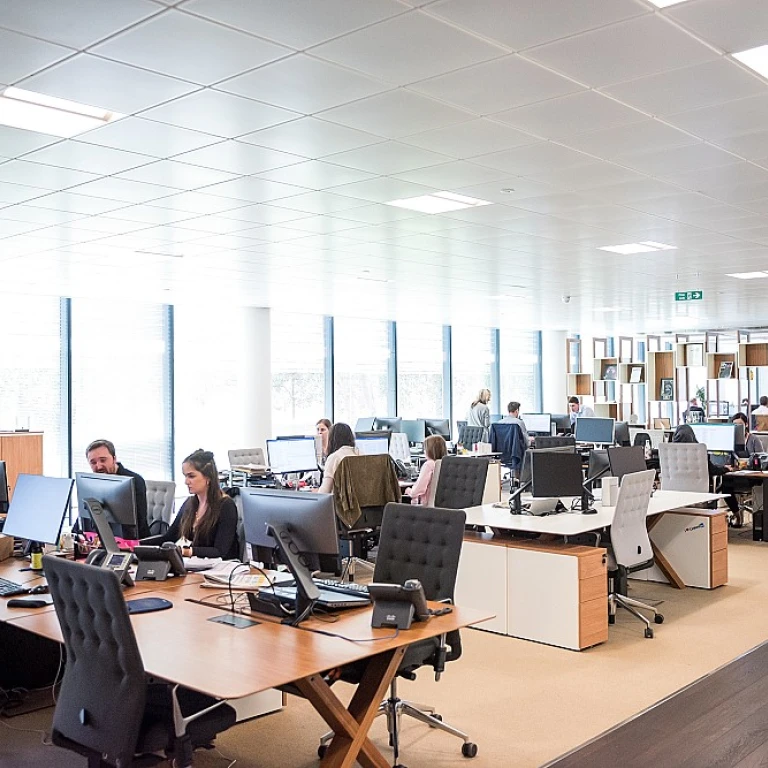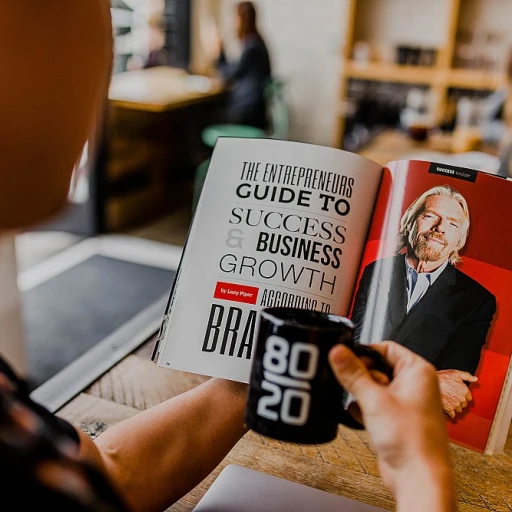
The Role of AI in Modern Recruitment
Artificial Intelligence at the Heart of Hiring
Artificial intelligence is shifting gears in how we manage recruitment. It's like having an extra set of hands, or better yet, a digital detective that sifts through mountains of resumes, looking for the right fit. In a sense, it's revolutionizing the age-old process of finding talent, making it faster for recruiters than ever before.
This isn’t just about cutting down the time it takes to find qualified candidates. When you're a hiring manager knee-deep in job descriptions and social media profiles, any tool that enhances the hiring process is welcome. From discerning soft skills to picking up on subtle nuances in candidate data, AI is a silent partner in decision-making.
AI's role is broad and impactful. It’s helping companies who are looking to stretch their arms farther, reaching out to the exact talent they need. Imagine a recruitment process where candidates are not only more relevant but engagement is heightened. It’s about improving the candidate experience, ensuring that your company attracts the top talent that aligns perfectly with your needs.
AI's adoption into the recruiting process is as essential as caffeine on a Monday morning unlocking the potential of AI in recruitment. It's in arenas like these where technology truly shines, adding intelligence that's more machine than human, but efficient nonetheless.
AI Tools Revolutionizing Candidate Screening
Tech Changing How We See Applicants
The world of recruitment is buzzing with the use of artificial intelligence tools that are changing how hiring managers look at candidates. With these tools, companies can handle a huge amount of job applications by smartly sifting through resumes. They highlight the best talent based on desired skills, past experience, and qualifications.
Think about recruitment software that uses data-driven methods to quickly sort a massive stack of resumes. Instead of spending precious time on the initial screening part of the hiring process, recruiters can focus more on engaging with the right talent who have shown they meet the job requirements. This saves time and energy and significantly speeds up the recruitment process.
New Tools, New Opportunities
Various AI-driven technologies are changing the way recruiters find candidates. Social media platforms, powered by machine learning algorithms, help uncover talent that might not be visible through traditional job listings. This recruitment software scans profiles, analyzing their skills and public interactions, giving recruiters a broader pool of qualified candidates to consider.
Reducing the Hiring Load
Scheduling interviews is often a time-consuming task for human resources. However, intelligent interview scheduling tools are now taking over this responsibility, allowing automated systems to manage candidate availability and preferences. By streamlining this aspect of the process, recruiters and hiring managers can devote more time to the human side of recruitment, building relationships with potential hires.
Want to know more about how AI is influencing recruitment? Check out this insightful piece for a detailed perspective on the current trends and applications.
Balancing Automation and Human Touch
Striking the Balance with Automation and the Human Touch
Finding the sweet spot where automation meets the personal touch can sometimes feel like a tightrope walk in the hiring process. Let's face it, while artificial intelligence significantly streamlines aspects like candidate sourcing and interview scheduling, maintaining a genuinely human experience is paramount in talent acquisition. Imagine a recruitment process that manages both efficiency and empathy – that's the goal. Recruiting tools and technologies, like machine learning algorithms, are transforming recruitment software capabilities. These tools help parse through mountains of data, assess candidate skills, and trim the time needed for initial screening. As a result, hiring managers can focus their energy on connecting with candidates in meaningful ways. But don't get too comfortable, recruiters! While technology enhances efficiency, it's your human insights that translate data points into actual hiring decisions. Questions about a candidate's experience, their motivation, and ambitions cannot be fully gauged by data alone. That's where your gut instinct and understanding of people come in handy. In this world shaped by artificial intelligence, striking the right balance means being thoughtful about which parts of the recruiting process to automate and which require the custom touch of human resources professionals like yourself. For companies looking to combine the benefits of technology with the subtleties of human interaction, unlocking the future of hiring with AI in talent acquisition is crucial. After all, at the heart of every recruitment process, it's all about creating a comfortable and personalized candidate experience that leads top talent to your door.Addressing Bias and Ethical Concerns
Nurturing the Human Aspect While Embracing AI
Balancing the use of artificial intelligence in recruitment is much like a tightrope act. On one side, we have the remarkable efficiency AI offers, while on the other, there's the irreplaceable human touch that makes the recruitment process personal and engaging. AI tools can indeed make the hiring process breezier, helping recruiters sift through hundreds of candidates with greater ease. However, the charm of human interaction lies in its ability to understand nuances, catch subtleties, and connect on a more personal level. Both sides need to work symbiotically to create a process that feels fair and approachable for job seekers.Tapping Into Empathy
Using AI in hiring shouldn't mean swapping warmth for wires. Human skills such as empathy and intuition remain crucial in interpreting a candidate's potential beyond the data. A person's passion, cultural fit, and soft skills don't always jump off an AI analysis spreadsheet. Artificial intelligence should aid but not replace, allowing recruiters to spend more time on interpersonal elements. While AI helps manage time efficiently, especially in scheduling interviews or shortlisting candidates, recruiters can focus more on candidate experience. They can take the time to convey the company culture and understand the perspectives of candidates during interviews, strengthening the recruitment process with both intelligence and empathy.A Mutual Relationship
Finding that equilibrium between technology and the human touch in recruitment is what makes a seamless process. Companies amazed by technology might leap into automating everything. However, hiring decisions often need a human touch to understand unique candidate aspirations. It's about assigning AI for the repetitive and mundane tasks while allowing human resources professionals to do what they do best – connect with people. The end goal is to create a recruitment environment that doesn't feel clinical or transactional. With the right balance, AI and human intuition can together enhance candidate sourcing and guide hiring decisions effectively. Recruiters can be reminded that while AI might handle algorithms, humans still excel in managing emotions. Human resource management is evolving fast, but as this synergy unfolds, it's evident there's no replacing the human touch. AI's intelligence should amplify human recruiters' capabilities rather than shadow them.Future Trends in AI and Recruitment
What's Next for AI in Recruitment?
The recruitment process is always changing, and artificial intelligence is playing a bigger role in shaping its future. With technology advancing at breakneck speed, hiring managers and recruiters are finding new ways to make their jobs easier and more efficient. Let's take a look at some of the trends that are set to make waves in talent acquisition.AI-Powered Job Descriptions
One of the emerging trends is the use of AI to craft job descriptions. This isn't just about saving time; it's about creating descriptions that attract the right candidates. By analyzing data from past successful hires, AI can help tailor job descriptions that appeal to top talent, ensuring that companies get qualified candidates right from the start.Enhanced Candidate Sourcing
AI tools are getting smarter at sourcing candidates. By scouring social media, professional networks, and recruitment software, these tools can identify potential hires who might not even be actively looking for a job. This proactive approach helps companies tap into a wider pool of talent, making the recruiting process more efficient and effective.Predictive Analytics for Better Hiring Decisions
Predictive analytics is becoming a game-changer in recruitment. By analyzing patterns and trends in candidate data, AI can predict which candidates are most likely to succeed in a given role. This not only speeds up the hiring process but also improves the quality of hiring decisions, reducing turnover and increasing employee satisfaction.AI and Interview Scheduling
Scheduling interviews can be a logistical nightmare, but AI is here to help. Automated systems can coordinate schedules between candidates and recruiters, minimizing back-and-forth emails and freeing up time for more strategic tasks. This improves the overall candidate experience, making the process smoother and more engaging.Balancing AI and Human Touch
While AI is making strides in recruitment, it's crucial to remember the importance of the human element. The best recruitment strategies will blend AI tools with human intuition and empathy. Recruiters should use AI to handle repetitive tasks and data analysis, allowing them to focus on building relationships and understanding the unique skills and motivations of each candidate. The future of recruitment is bright with AI leading the charge. As companies continue to integrate AI into their hiring processes, they'll find themselves better equipped to attract, evaluate, and retain top talent. Staying ahead of these trends will be key for any company looking to thrive in the competitive job market.Implementing AI in Your Recruitment Strategy
Embarking on the AI-Powered Recruitment Strategy
Implementing AI into your company's recruiting process might seem like a tech-heavy leap, but it's a game-changer that brings efficiency and effectiveness to the forefront. Whether it's screening potential talent or crafting engaging job descriptions, AI helps streamline these processes.
Kickstarting your AI journey begins with understanding what your recruitment process lacks. Have candid chats with your hiring managers and human resources team to pinpoint areas where AI tools can lend a hand. Once you identify these gaps, you'll have a clearer view of where AI can make a difference.
- Choosing the Right Tools: From recruiting software that simplifies candidate sourcing to machine learning algorithms that enhance decision-making, picking the right tool is crucial. Evaluate your current technology landscape and see where AI can slot in without hiccups.
- Training Recruiters: Your recruiters and human resource personnel need to understand the capabilities and limitations of AI. Providing them with the right training will ensure they use AI tools effectively, maximizing their potential in identifying top talent.
- Maintaining the Human Touch: It's all about striking a balance. While AI can aid in social media scouting for qualified candidates or automate interview scheduling to save time, the human experience shouldn't be sidelined. Ensuring compassionate candidate interaction must remain integral to your process.
Deploying AI solutions within recruitment requires cooperation. Engage with tech-savvy specialists who can tailor these tools to suit your company’s environment, enhancing the experience for everyone involved.
Continuously analyze AI's impact on your recruitment strategy, from candidate experiences to the hiring process's efficiency. With AI continuously evolving, stay informed about new capabilities that could enrich your recruitment processes further. Remember, AI's role isn't to replace humans but to assist in making more informed, robust hiring decisions. If you want a deeper understanding of these advancements, explore how AI is transforming recruitment in more ways than one.







